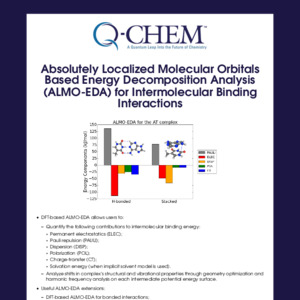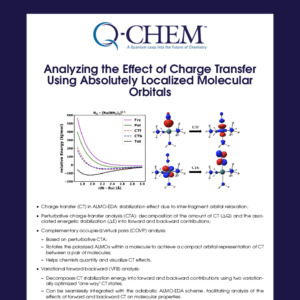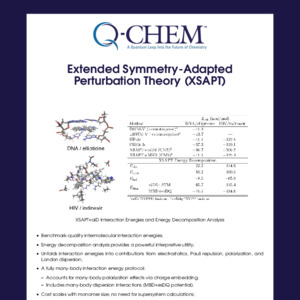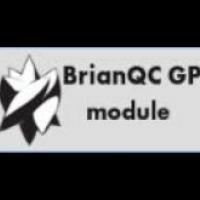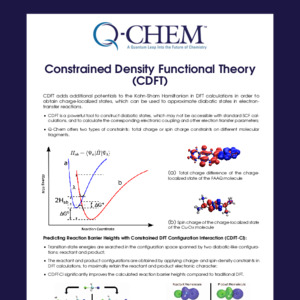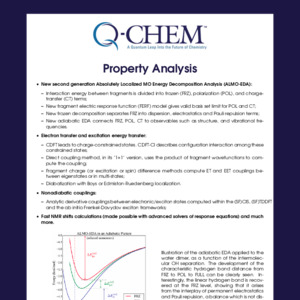Q-Chem Webinar 62
RI-DFT in Q-Chem 6 (2022 Wormit Award Presentation)

The 2022 Womit Award winner is Q-Chem staff scientist, Dr. Xintian Feng. Xintian is recognized for his work on Q-Chem’s core structure and functionalities, particularly EOM-CC methods, RI-based SCF, and DFT/TDDFT Hessians, as well as for his active community-building efforts including mentoring and assisting other Q-Chem developers.
Xintian graduated with a B.Sc. degree in Chemistry from the Beijing Normal University, China, in 2008. In 2011 Xintian carried out his M.Sc. thesis project, "Theoretical Study of Metal-Binding Specificity of Heme" under the direction of Prof. Ruozhuang Liu and Jianguo Yu, also at Beijing Normal Univeristy. In 2011 he joined the group of Prof. Anna Krylov at the University of Southern California, where he carried out his Ph.D. research on predictive electronic structure methods. Xintian defended his Ph. D. thesis, entitled ”Predictive Electronic Structure Methods For Strongly Correlated Systems: Method Development and Applications to Singlet Fission,” in November 2016 with excellence. In 2017, Xintian became a postdoc with Prof. Martin Head-Gordon at the University of California at Berkeley while simultaneously working with Q-Chem. In 2019, he joined Q-Chem as a full-time Staff Scientist.
Abstract
In this talk, I will demonstrate the improved performance of DFT in Q-Chem 6.0 using our recently-implemented density-fitting technique for Coulomb and Hartree-Fock exchange. In this approach, explicit construction of the inverse matrix is replaced by the solution of a system of linear equations, leading to faster and more efficient DFT calculations. During this webinar, I will also demystify the procedures used within the Q-Chem office to develop high-performance code.
